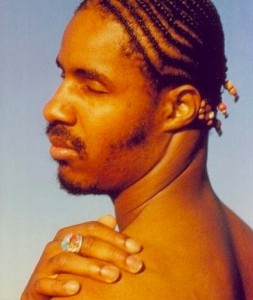 Ronnie White of the Miracles is responsible for presenting Stevie Wonder to the world. When Stevie was just 11 years-old, he sang a song he had written, “Lonely Boy,” for Ronnie, and Ronnie was impressed enough to get Stevie an audition at Motown. He impressed the folks at Motown too. Berry Gordy, Jr. signed Stevie to his Tamla imprint, and producer Clarence Paul changed Stevie’s name from Stevland Morris to Little Stevie Wonder.
Ronnie White of the Miracles is responsible for presenting Stevie Wonder to the world. When Stevie was just 11 years-old, he sang a song he had written, “Lonely Boy,” for Ronnie, and Ronnie was impressed enough to get Stevie an audition at Motown. He impressed the folks at Motown too. Berry Gordy, Jr. signed Stevie to his Tamla imprint, and producer Clarence Paul changed Stevie’s name from Stevland Morris to Little Stevie Wonder.
It was the beginning of a now legendary career. I first saw Stevie when he was billed as the “12 year-old genius,” and he was on the road promoting his early hit “Fingertips Part 1 & 2.” The show was at the Steel Pier in Atlantic City, and you didn’t have to be particularly prescient to know that the little kid up on the stage, bursting with talent, was going to be a huge star.
The hits kept coming in rapid succession. Songs like “Uptight (Everything’s Alright),” “Blowin’ in the Wind,” “A Place in the Sun,” “Shoo-Be-Doo-Be-Doo-Da-Day,” “My Cherie Amour,”Yester-Me, Yester-You, Yesterday,” “Signed, Sealed, Delivered I’m Yours,” “We Can Work it Out,” and “If You Really Love Me” all finding places in the upper reaches of the pop chart.
When Stevie’s contract with Motown expired, the company was determined to retain his services. They signed Stevie to a new contract, gave him a higher royalty rate, and perhaps most importantly, more artistic freedom. Stevie responded with the Music of My Mind album, a complete artistic statement on which he played most of the instruments himself. The album included the unique new sound of “Superwoman (Where Were You When I Needed You),” which was a Top 40 hit.
The next album in this classic Stevie Wonder era was Talking Book, released in 1972. It was Stevie’s fifteenth album, and one of his biggest. It yielded the #1 singles “You Are the Sunshine of My Life,” and “Superstition,” which reached to top spot of the R&B and pop charts. Talking Book picked up from where Music of My Mind left off, with Stevie continuing to expand his musical palette. Guest musicians on the album included Jeff Beck, Ray Parker, Jr., Buzzy Feiten, and David Sanborn.

The final track on Talking Book is “I Believe (When I Fall in Love it Will be Forever).” The song was written by Stevie and Yvonne Wright. Although it was never released as a single, it is a highly influential song that was featured in the 2000 film High Fidelity, which starred John Cusack, and became an FM radio staple.
Although he has continued to endure as an artist over the years, Stevie’s next album, Innervisions, was certainly one of the peaks in his long and storied career. The album featured the hits “Higher Ground,” “Living for the City,” and “Don’t You Worry ’bout a Thing.” Innervisions was a peak for sure, but no one can say that Stevie’s next two albums were not its equal. Stevie busted out Fulfillingess’ First Finale in 1974, and followed that with the classic Songs in the Key of Life two years later. Both albums reached the #1 spot on the pop chart.
So let’s recap. Between Music of My Mind, released in March, 1972, and Songs in the Key of Life, released in September, 1976, four out of the five albums that Stevie released were Top 5. Music of My Mind didn’t do quite as well, only reaching #21, but it’s important to remember that it was a complete change from what people had come to expect from Stevie, and it took awhile for the new sound to find an audience.
Stevie continued his run of Top 5 albums with Stevie Wonder’s Journey Through the Secret Life of Plants (soundtrack – 1979), Hotter Than July (1980), The Woman in Red (soundtrack – 1984), and In Square Circle (1985). After a few albums that “only” made the Top 20, Stevie returned to the upper reaches of the charts in 2005 with his most recent album, A Time to Love.
https://www.youtube.com/watch?v=vy8Vf9d-GHM





Comments